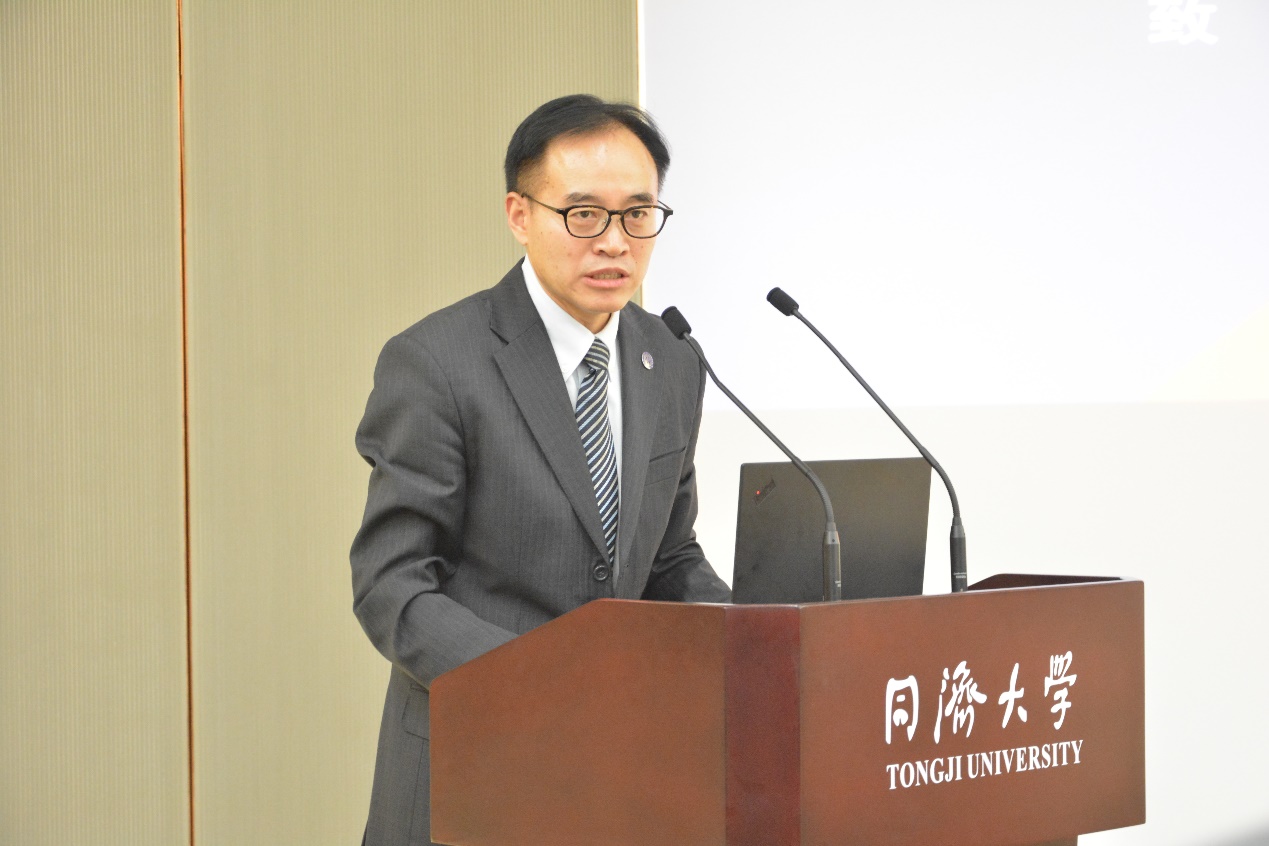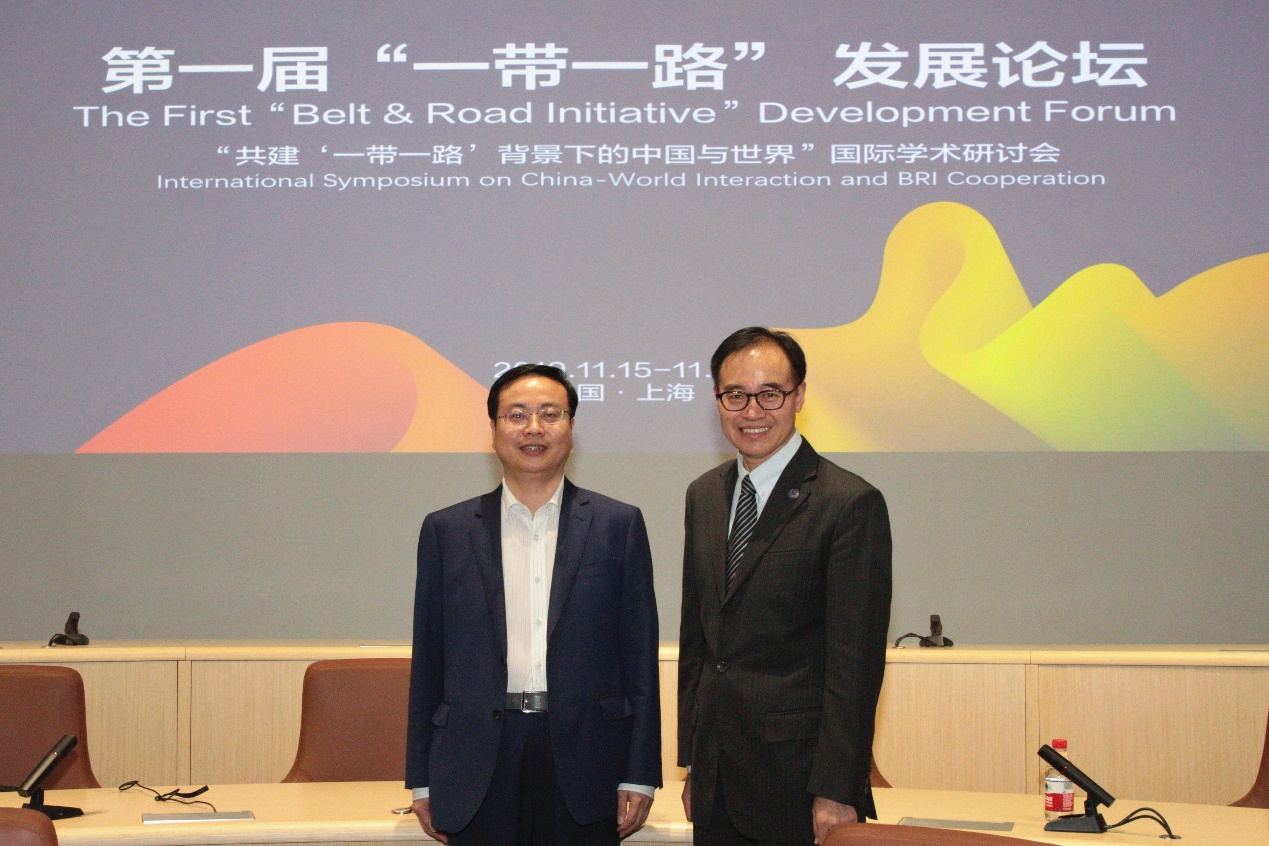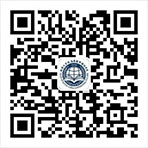
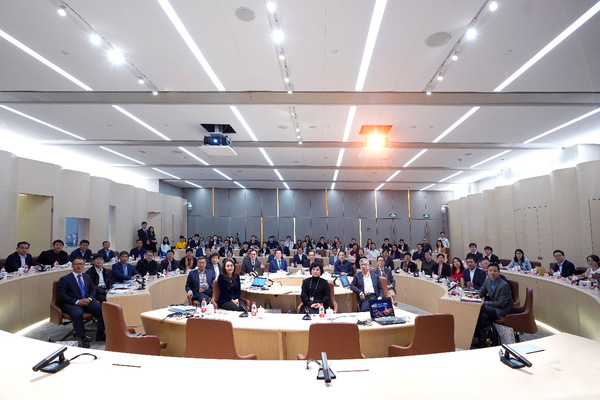
Co-sponsored by the Secretariat of the Silk Road Think Tank Association (SRTA) and the Institute for China & World Studies of Tongji University, co-hosted by SRTA and Tongji University, and co-organized by the Institute for China & World Studies of Tongji University, the China Center for Contemporary World Studies (CCCWS) of the International Department of the CPC Central Committee, the School of Political Science & International Relations (SPSIR) of Tongji University, the Office of Liberal Arts of Tongji University, and the Shanghai Institute of International Relations, the first “Belt & Road Initiative” Development Forum was held in the Sino-French Center, Siping campus, Tongji University on November 15-16, 2019. It was attended by more than 70 domestic experts and scholars from the International Department of the CPC Central Committee, Chinese Academy of Social Sciences (CASS), Tsinghua University, Fudan University, Tongji University, Jilin University, Beijing Normal University (BNU), Shanghai Jiao Tong University (SJTU), Lanzhou University (LZU), China University of Political Science and Law (CUPL), China Foreign Affairs University (CFAU), China Institute of International Studies (CIIS), Shanghai International Studies University (SISU), Shanghai Academy of Social Sciences (SASS), and Shanghai Institutes for International Studies (SIIS), etc., as well as more than 10 professionals from Russia, Italy, Mexico, Turkey, New Zealand, Mongolia, Argentina, Portugal, Kenya, Armenia, and Tonga, etc. With the theme of “China-World Interaction and BRI Cooperation”, the guests discussed the new situation of major power co-opetition and China’s period of strategic opportunities amid the profound changes unseen in a century, and the contribution of BRI cooperation to a new type of international relations. The forum has demonstrated the time logic and future direction of China-world interaction, and brought together academic consensus and wisdom on China’s strategic response in the new era. SRTA Secretary General Jin Xin and Tongji Vice President Jiang Bo attended the opening ceremony and delivered speeches. The opening ceremony was moderated by Tongji Distinguished Professor Men Honghua, President of the Institute for China & World Studies and Dean of SPSIR.
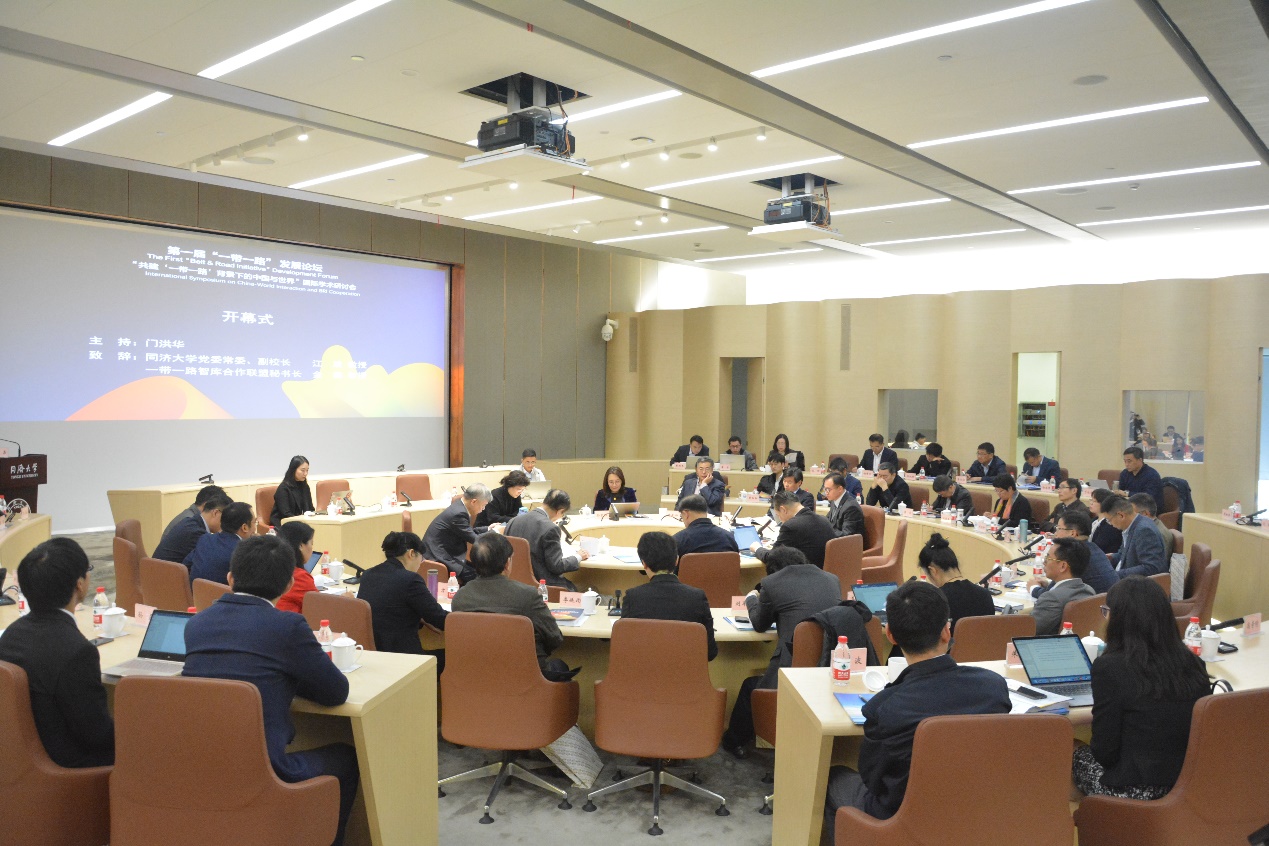
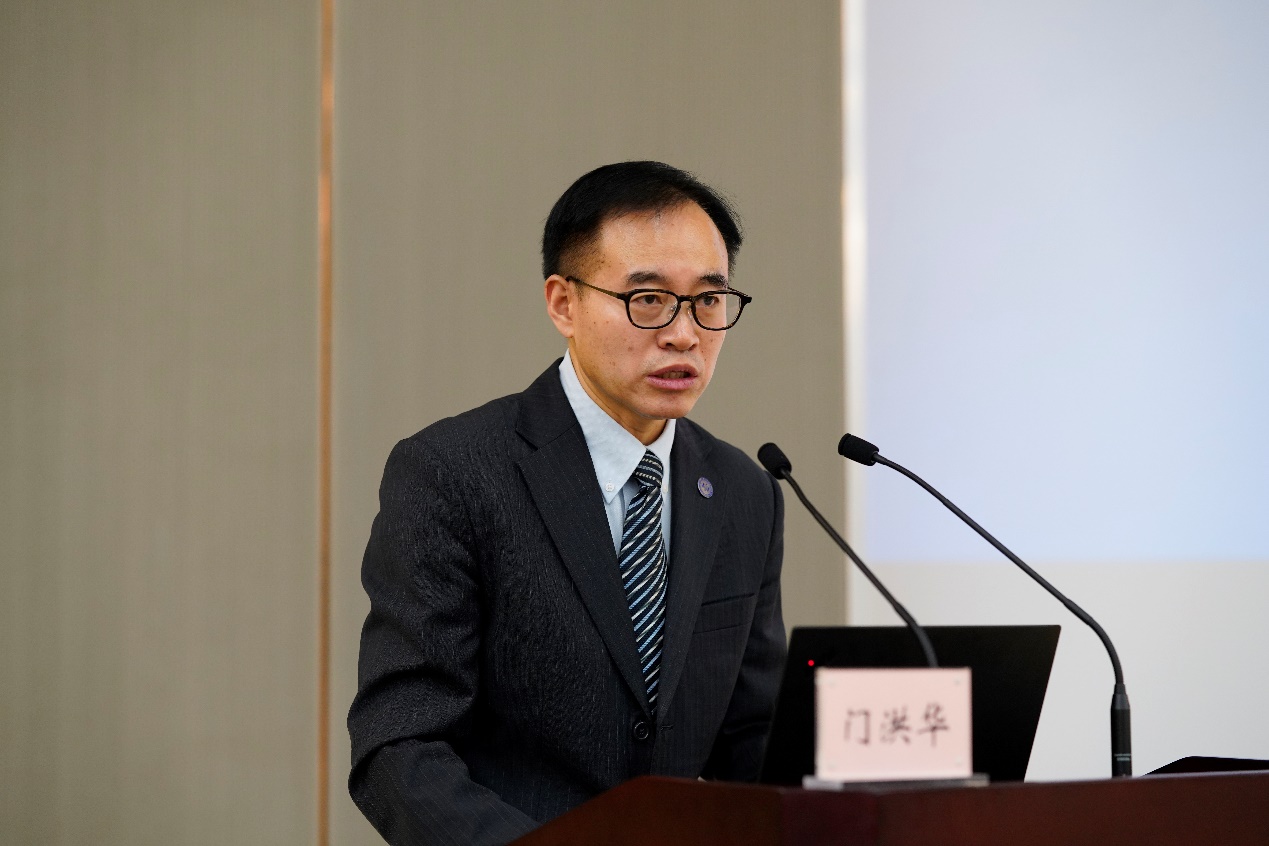
Tongji Vice President Jiang Bo delivered his speech from the following three aspects. First, we should understand the significance of BRI cooperation amid the greatest changes in a century. At present, China is in the best period for development since modern times, the world is undergoing the greatest changes in a century, and China is in a critical period for realizing its national rejuvenation. Observing and reflecting on the BRI in a changing world highlights the epochal and global significance of this initiative. It is imperative to address such major issues as how to understand global trends, know well China’s development direction, and promote constructive interaction between China and the world, which has echoed the purpose of this forum. Second, we should advance the BRI through opening up and cooperation. The BRI has opened up new space for world economic growth, built new platforms for international trade and investment, expanded new practices for the improvement of global economic governance, and made new contributions to improving people’s well-being around the world. This is a vivid practice of a new type of international relations featuring win-win cooperation, and it is also a core theme of this forum. Third, we should seek solutions to global problems in the turbulent and changing world. Mankind is facing unprecedented global problems in terms of quantity, scale and severity. The politics and economy of the world is undergoing profound restructuring. The rising unilateralism, conservatism and populism have caused turmoil and clashes of social thoughts. The international community is in urgent need of new ideas for global governance. An important purpose of this forum is to handle these risks and challenges and solve global problems by offering policy advice based on ideological consensus.
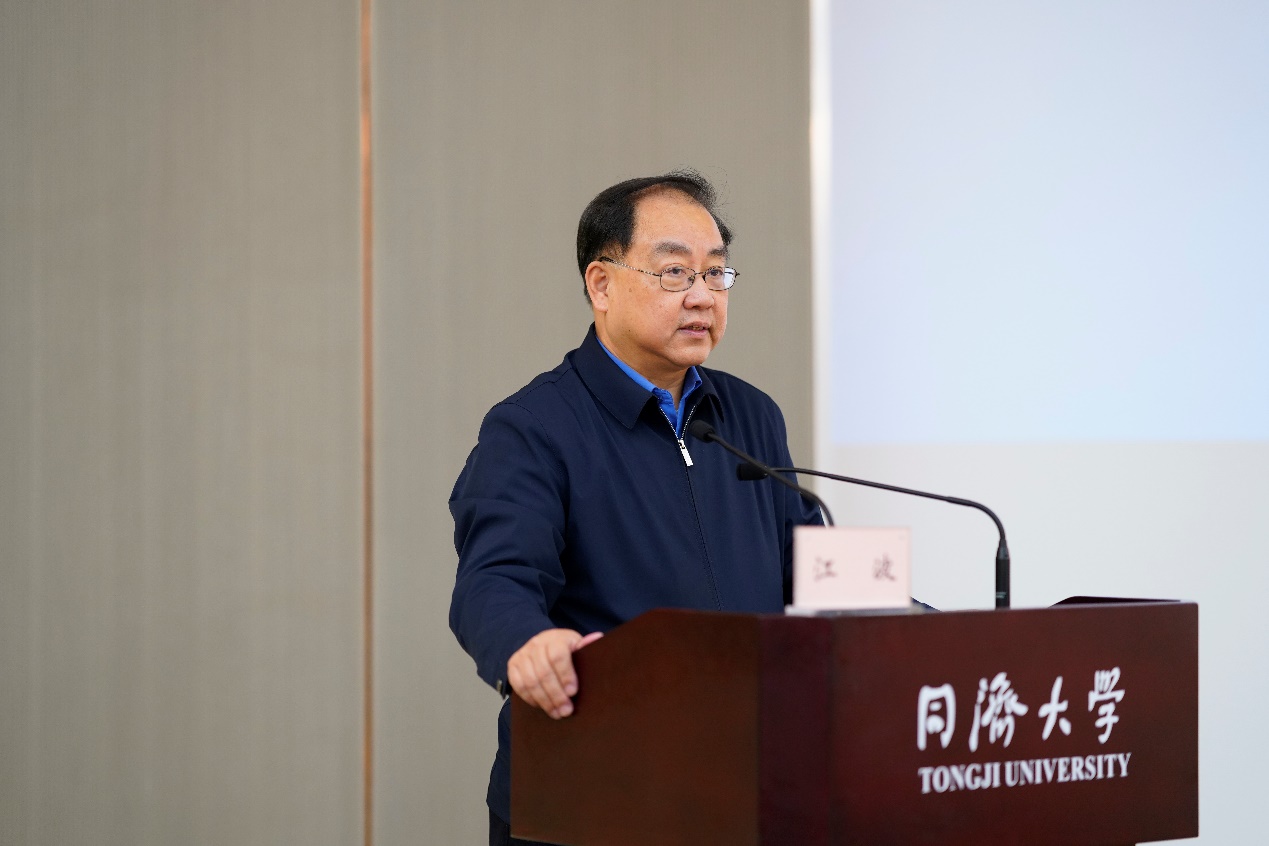
Researcher Jin Xin, Secretary General of SRTA and Director General of CCCWS, pointed out in his speech that “the great changes in a century” suggest major adjustments in global production, exchange and distribution modes, as well as constant innovation in the development path of globalization and the reform of global governance model. This is mainly reflected in the following four changes. First, the international structures of power and strategic pattern are changing. The further development of multi-polarization has made the international structures of power more balanced, which shows a trend of “the rising East vs. the declining West, the rise of emerging countries vs. the decline of established powers”. Second, the center of gravity of world economy and the process of economic globalization are changing. Economic globalization has entered a period of adjustment and slowed down significantly, with regional cooperation becoming fragmented. Third, technologies and industries are changing. Driven by technological innovation, mankind is moving towards the fourth industrial revolution. New technologies will profoundly change the way we produce and live, and will have a far-reaching impact on the development and change of the world situation. Fourth, the global governance model is changing. With the deepening of international competition and cooperation, and the growing number and complexity of global issues, the existing global governance mechanisms have become ineffective and the relevant actors are unwilling to govern, which have created a rare opportunity for emerging countries to participate in global governance. As to the research work in the context of profound changes, he suggested as follows: First, dare to predict the future changes; Second, “describe” the reasons and trends of the changes, and also study how we can “adapt” to and “lead” these changes to meet our expectations; Third, seek truth from facts in academic research and foreign exchanges, and contribute China’s efforts to global development and governance.
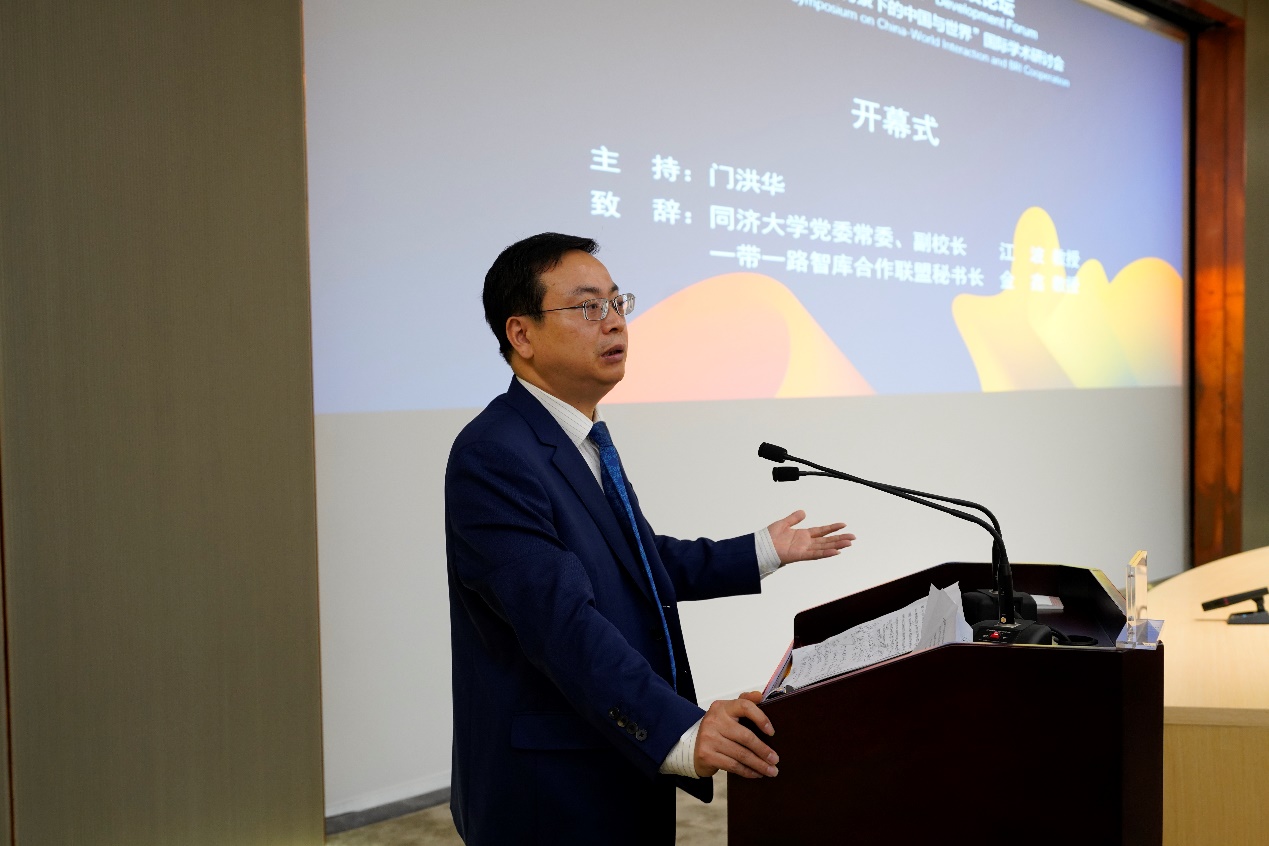
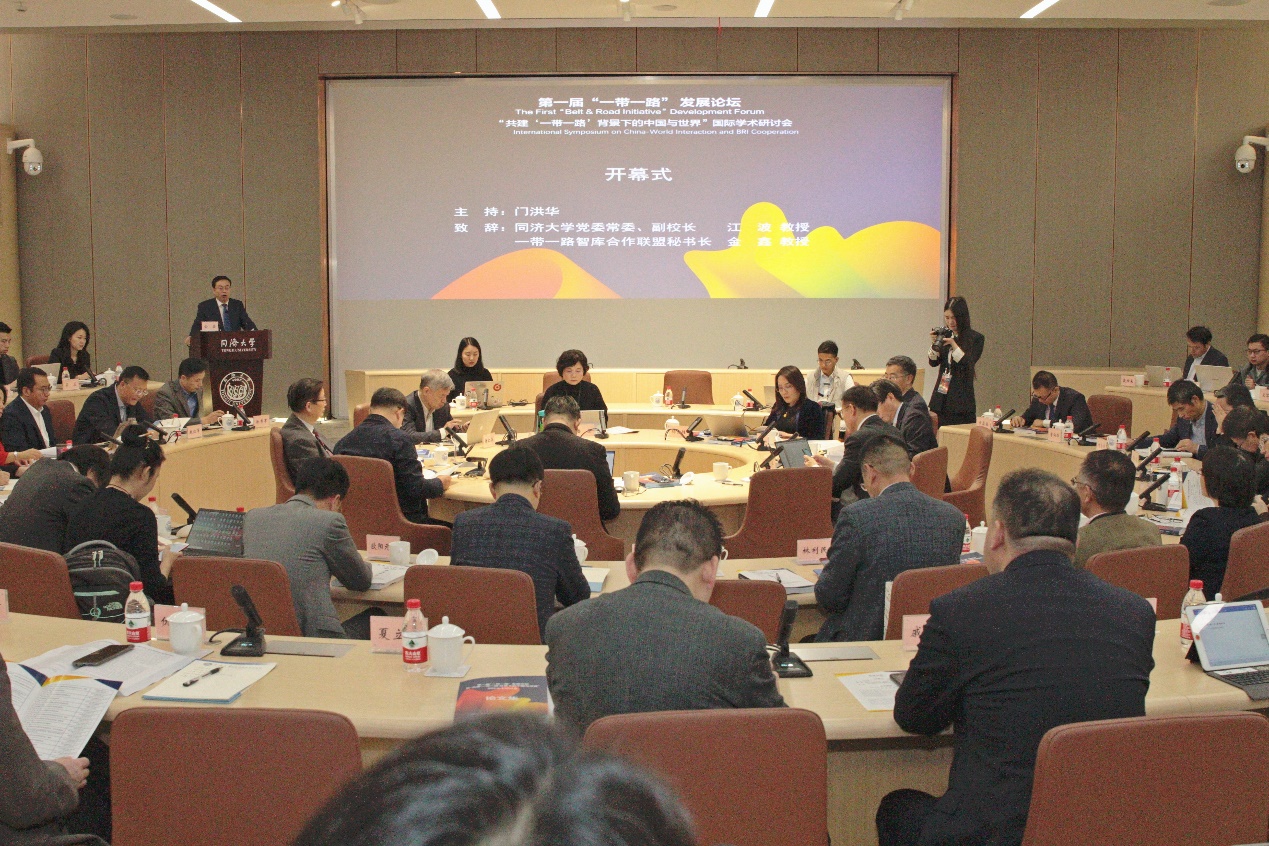
The opening ceremony was followed by a session of keynote speeches. The first speaker was Prof. Zhou Xisheng, former Vice President of Xinhua News Agency and a senior professor of liberal arts at Southeast University. In his speech entitled “The Future of China-US Relations in a Changing World”, Prof. Zhou pointed out that in China’s journey towards the “two centenary goals” and the national rejuvenation, we will have to face both domestic risks and international traps, and the latter are more difficult to address than the former. International risks include: the world is undergoing profound changes unseen in a century; and due to the pressure of the United States, China is standing at the forefront of international competition, facing unprecedented external pressure and a sinister external environment. In his view, the major changes in the international situation are mainly reflected in the following facts: global governance has stagnated and the world is out of order; the world has become more competitive than ever, especially among major powers, and the ways of competition has diversified; tremendous changes are taking place in the world landscape, and a new technological revolution is under way; the role of ideology is playing down, and the struggle for economic leadership has become a top priority for major countries in the world; economic globalization has led to a reshuffle of the world, and the international structures of powers are changing significantly; many countries are undergoing a turbulent political situation, and the world is focusing on the competition over new technologies and economies. Finally, he called for a more comprehensive understanding of the US so as to correctly observe, analyze and grasp China-US relations amid great changes.
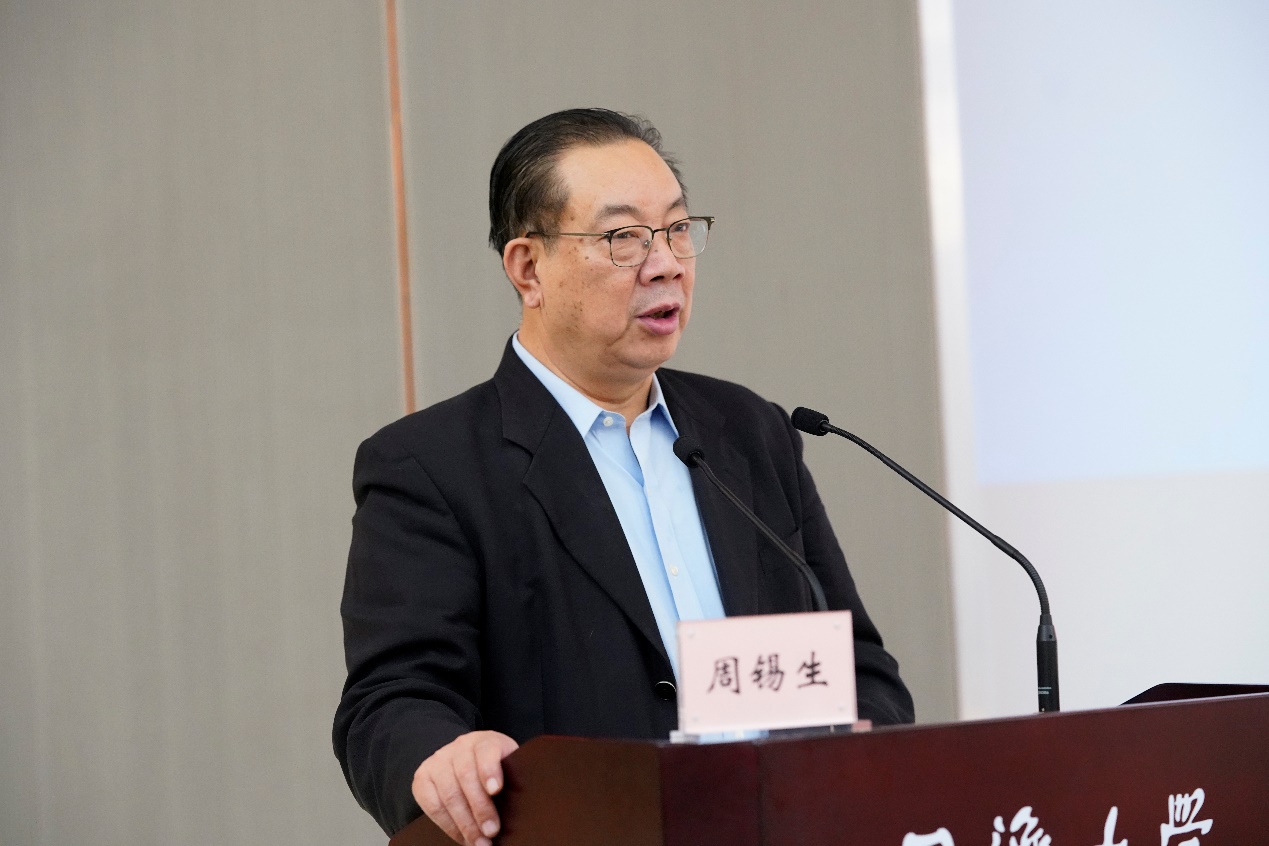
Researcher Li Xiangyang, Director of the National Institute of international Strategy (NIIS), CASS and President of the Chinese Association of Asia-Pacific Studies, said in a keynote speech entitled “A Study on the New Situation of Major Power Competition amid Once-in-a-Century Changes” that the main factors affecting the changes include: increasing domestic income inequality in developed countries, the development direction of a new technological revolution and its uncertainty, the rise of nationalism, the trend of “a rising East vs. a decline West” in the world pattern, and the stagnation of globalization, etc. In this context, major powers are competing for leadership in science and technology, which has caused the world order to be reshaped. Meanwhile, the US is trying to maintain the existing order by promoting “exclusive globalization”, and giving priority to its own nation. “Reshaping the world order” and “my nation first” can be seen as a new situation of major power competition. Overall, this situation is inconsistent with the free trade and economic globalization that the international community has long emphasized. Countries like China have two options to address this competitive situation. One is a realistic option: each country minds its own business, which however may lead to the Kindleberger Trap. The other is an idealistic option: emerging powers fill the gap in the global supply of public goods left by the original hegemons, which requires further exploration and analysis of its strategic cost and capacity basis.
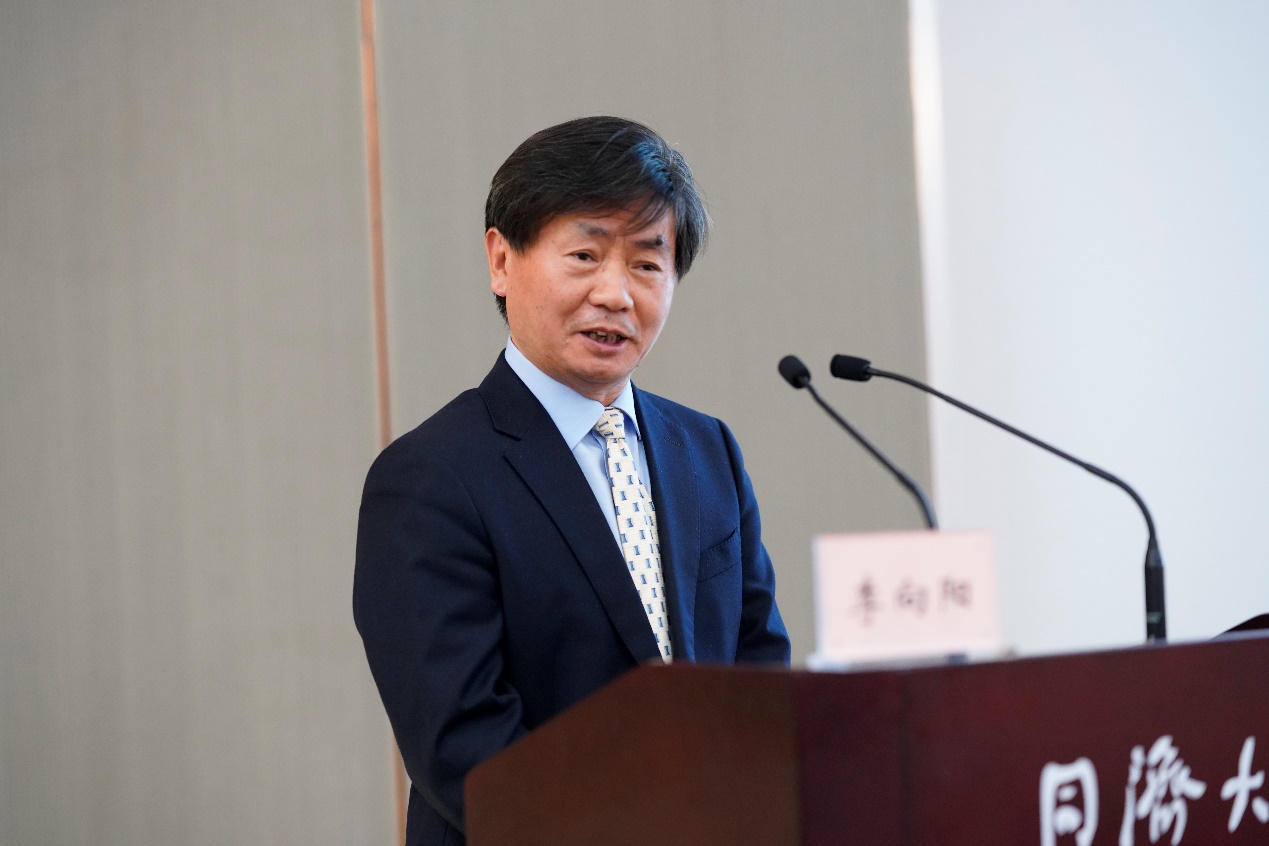
Researcher Huang Renwei, former Vice President at Shanghai Academy of Social Sciences (SASS) and Executive Vice Dean of Fudan Institute of Belt and Road & Global Governance (BRGG), focused his speech on the BRI and a community with shared future for mankind. He said that the Belt and Road Initiative provides a feasible path and a practical platform for a community with shared future for mankind. In this sense, the BRI is a new impetus for global economic development, and the 21st Century Maritime Silk Road and the Silk Road Economic Belt have revolutionized world trade and logistics. Such historic changes are part of “the greatest changes in a century”. At the same time, the BRI has driven the reform of global governance. The implementation of related projects have led to the formulation of corresponding rules, which have a profound impact on governance itself at the multilateral, regional and corporate levels. The BRI has also contributed to global coexistence – it not only refers to the coexistence of different social systems, economic systems, and cultural values, but also includes the global public goods supply system, the United Nations system, and the role of non-state actors in the world. On this basis, the BRI cooperation represents the global extension of China’s production capacity and industrial chain. At present, China is changing its international competitiveness from the labor intensive products to the full capacity of infrastructure, which also helps China avoid a new Cold War and the Thucydides Trap during its rise.
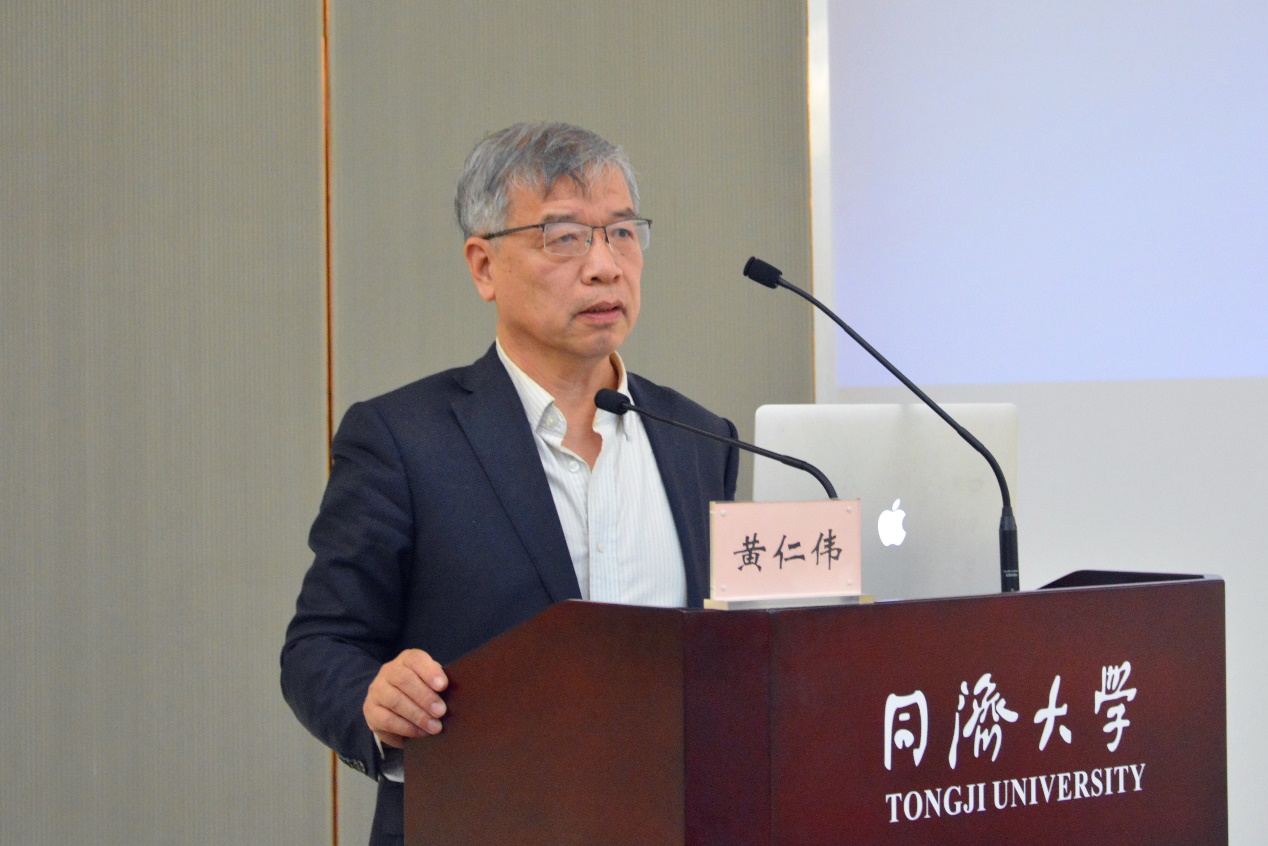
Prof. Su Changhe, Dean of the School of International Relations & Public Affairs, Fudan University, gave a speech entitled “Global Changes and China’s Program”. He believed that “the profound changes unseen in a century” are mainly reflected in four deficits. (i) Governance deficits. “Government crisis” or “governance quality” is affecting a country’s choice of development path; (ii) Development deficits. Currently, the world development is generally unbalanced, and the poverty issue remains a great concern; (iii) Trust deficit. China is exploring a political and diplomatic path with its own characteristics to tackle issues in governance, peace, development and trust; (iv) Peace deficit. The major problems arising from the current global governance are largely due to the existing adversarial system, while the consultation and cooperation system advocated by China is more conducive to enhancing and improving global cooperation on many governance issues. In the face of these deficits, China does not want to overthrow the international system, but to promote a gradual, stable and peaceful transformation of the system in incremental terms. China’s reform program is centered on the people, allowing more people to benefit from the development process. This program does not come at the cost of aggression, plunder or the independence and development of other countries. Instead, China can coexist with the rest of the world peacefully, take into account the interests of other countries, and achieve common development with them.
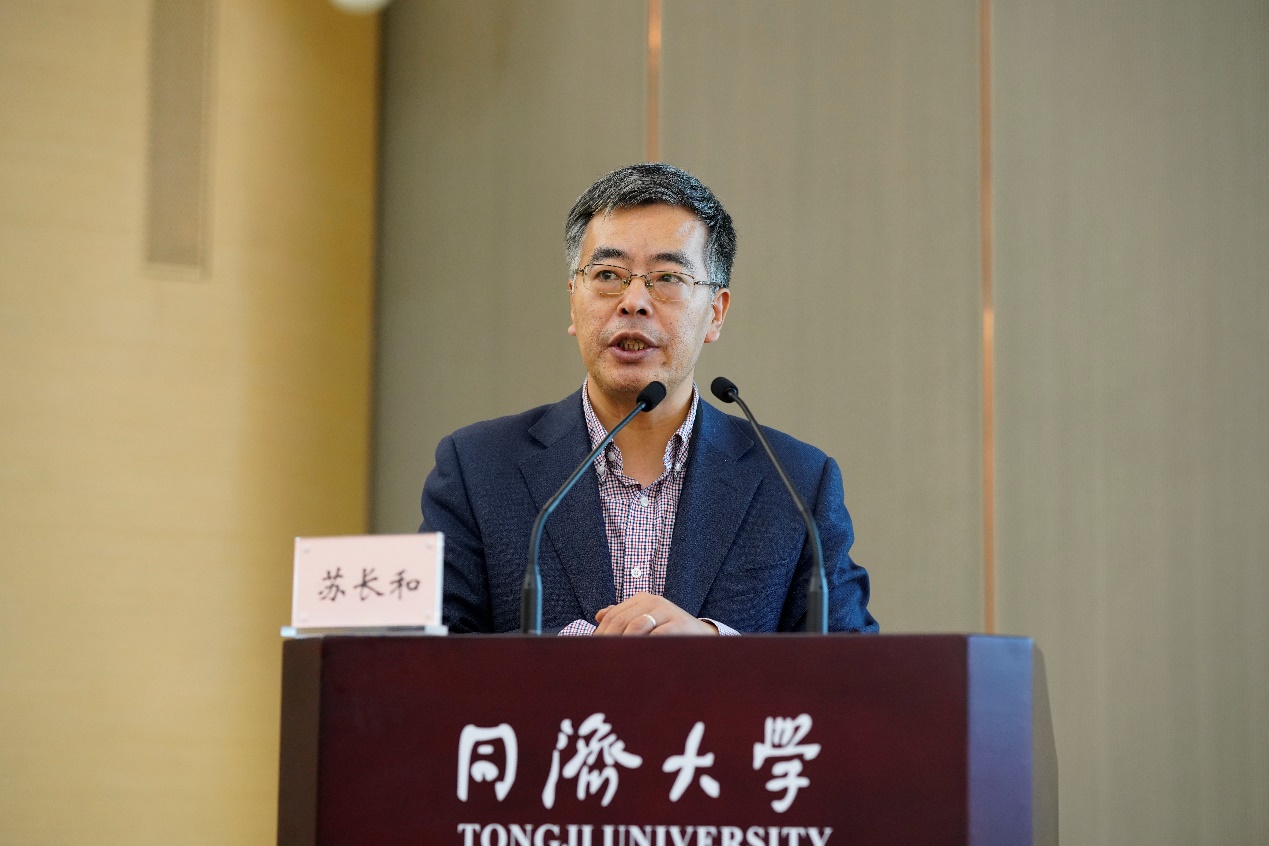
In his speech entitled “Shaping China’s Period of Strategic Opportunities amid the Greatest Changes in a Century”, Prof. Men Honghua said that such changes will enable China to shape its period of strategic opportunities the future. Currently, the center of the world is moving away from the West, or there is a coexistence of the Western center and the non-Western center. This is a time when globalization is undergoing adjustment, the world structures of power are transforming, and a new technological revolution is just around the corner. Against this background, the China-world interaction in the new era shows many new characteristics. The world is facing a rapidly rising China that is confident and open, and China is embracing a more complex and profoundly changing world in which both opportunities and challenges exist. Standing at a new starting point, China is still able to shape its period of strategic opportunities, which is based on China’s sustainable development, and also affected by the profound adjustment of the world economy. This is a critical moment for China to shape its own period of important strategic opportunities, and to shape such a period for other countries as well. In view of this, China should adhere to peaceful development, focusing on economic development and national construction; seize opportunities to expand globally and promote the reform of national governance; focus on the strategic expansion in East Asia to create a new regional order; focus on the BRI cooperation to reshape China-world relations; emphasize the role of economy in strategic expansion to shape an open world economy; and emphasize the strategic value of mutual learning among civilizations to enhance China’s soft power and provide the most critical cultural foundation for the building of a community with shared future for mankind.
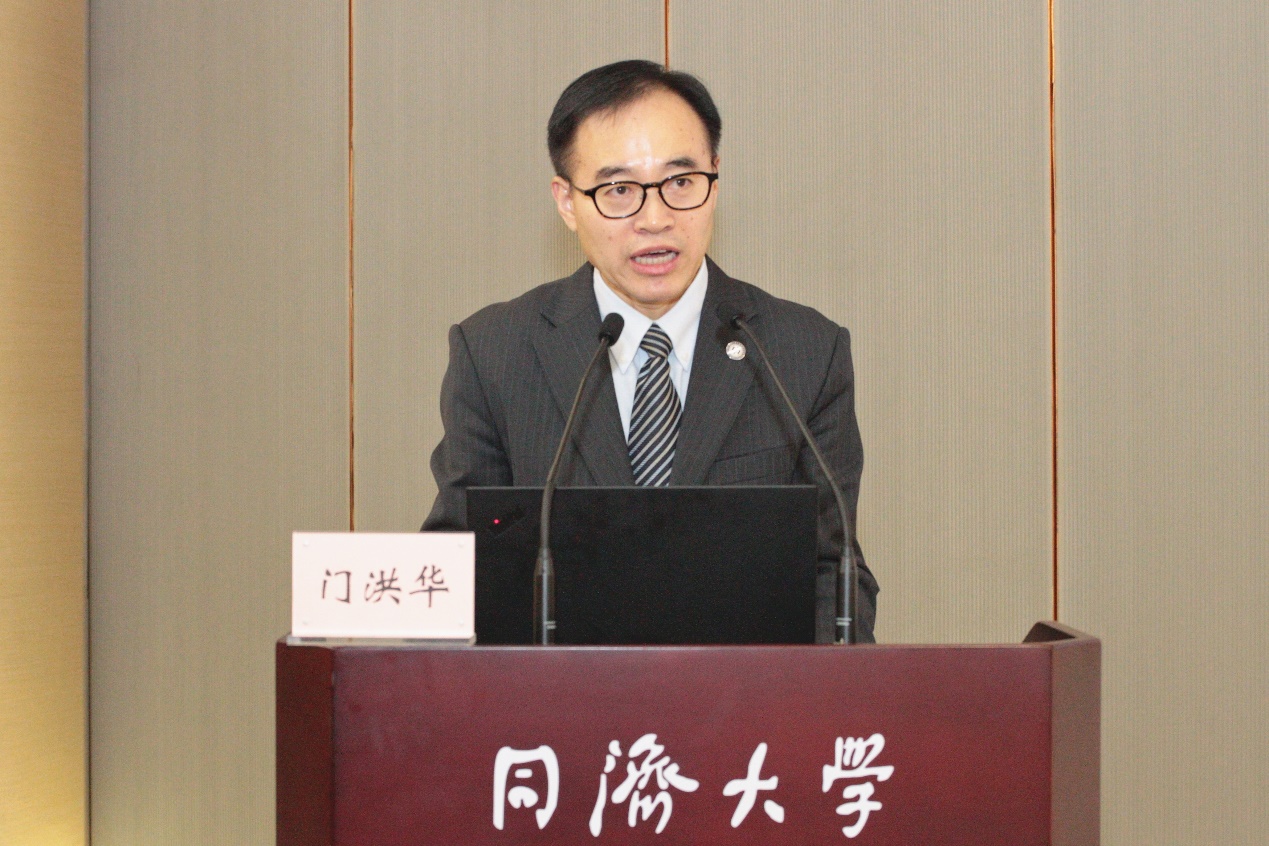
Prof. Sun Jisheng, Vice President of CFAU and Secretary General of China National Association for International Studies (CNAIS), delivered a speech on “Theoretical Thinking on BRI and Regional Cooperation”. In her view, the innovation and development of international relations theory are profoundly influenced by the traditional cultural concept, the world situation and its major changes. The current “profound changes unseen in a century” show that international relations are undergoing major changes, necessitating theoretical innovations based on culture and practices. It is important to value the Chinese culture in its entirety in the long run, while paying attention to the “changes, differences and connectivity” of things during their development process, and emphasizing the relevance and inclusiveness. With this way of thinking, China has always been pursuing a holistic approach to harmony. At this level, the BRI itself is a practice that can promote the theoretical innovation of international cooperation. It has played a key role in terms of cooperation methods, areas and models. Different from homogeneous cooperation, it is equal and open. Different from result-oriented cooperation, it is oriented by “result + process”. Different from cooperation in issue areas, it is driven by connectivity. Different from unilateral interest cooperation, it pursues common development. Looking to the future, the cooperation under the BRI framework can still be an alternative for fostering new norms of behavior and cooperation theories.
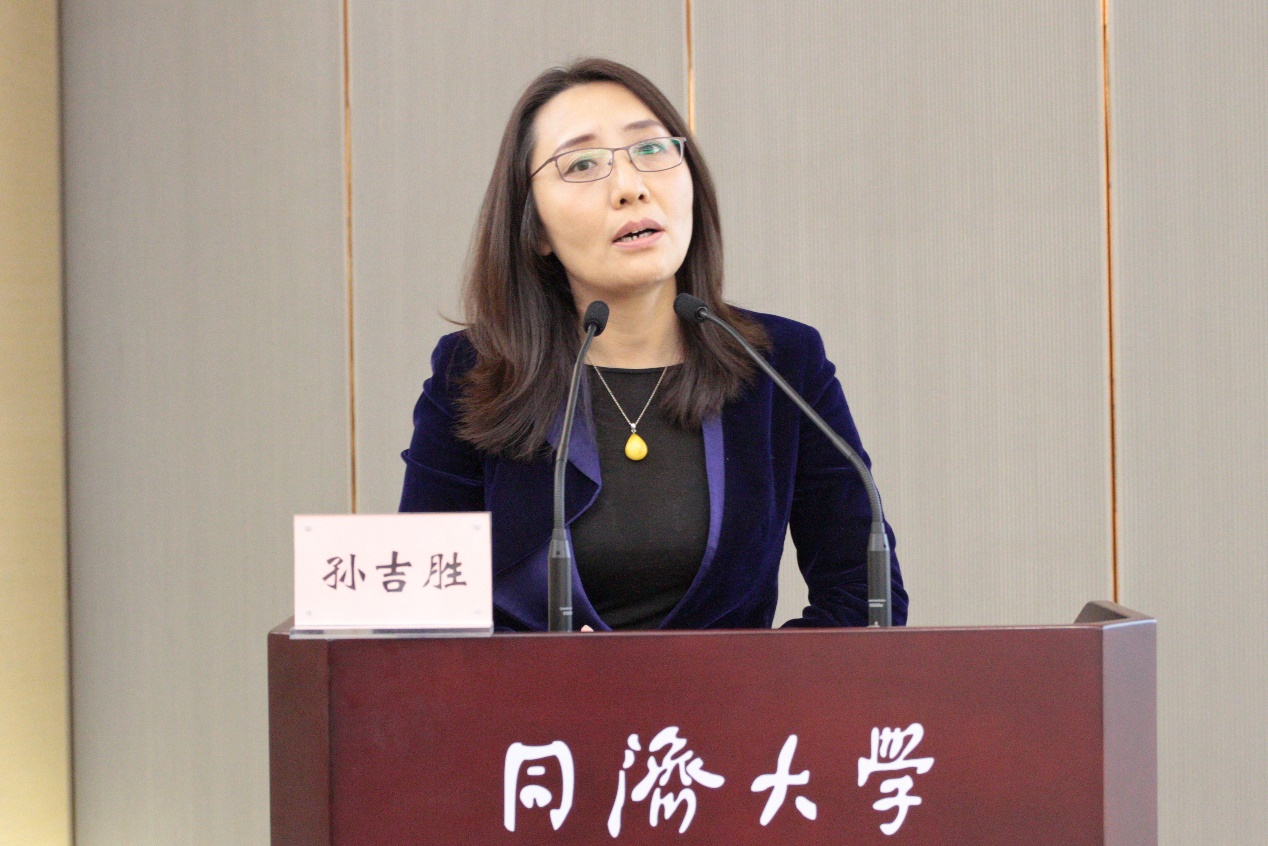
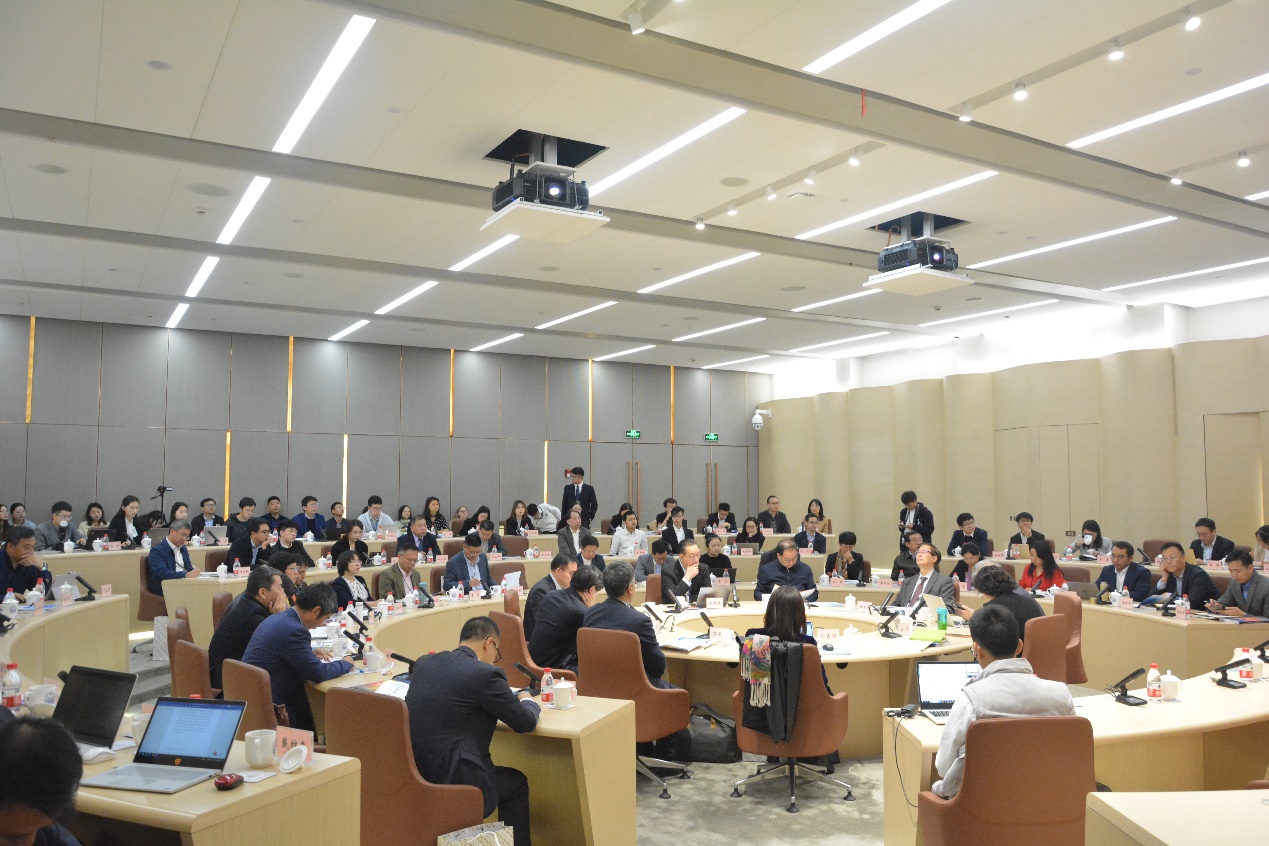
Then, experts, scholars and foreign guests expressed and exchanged views in four parallel sessions.
The first session was held in Conference Room C501, the Sino-French Center, Tongji University. With the theme of “The BRI and a New Model of International Relations”, the participants discussed the value of BRI for a new type of international relations and a community with shared future for mankind, as well as the realistic path of BRI cooperation in the process of enhancing China’s voice and soft power. This session was moderated by Prof. Men Honghua and researcher Lu Nanquan, an honorary CASS member and Vice Director of the Russian Studies Center at CASS.
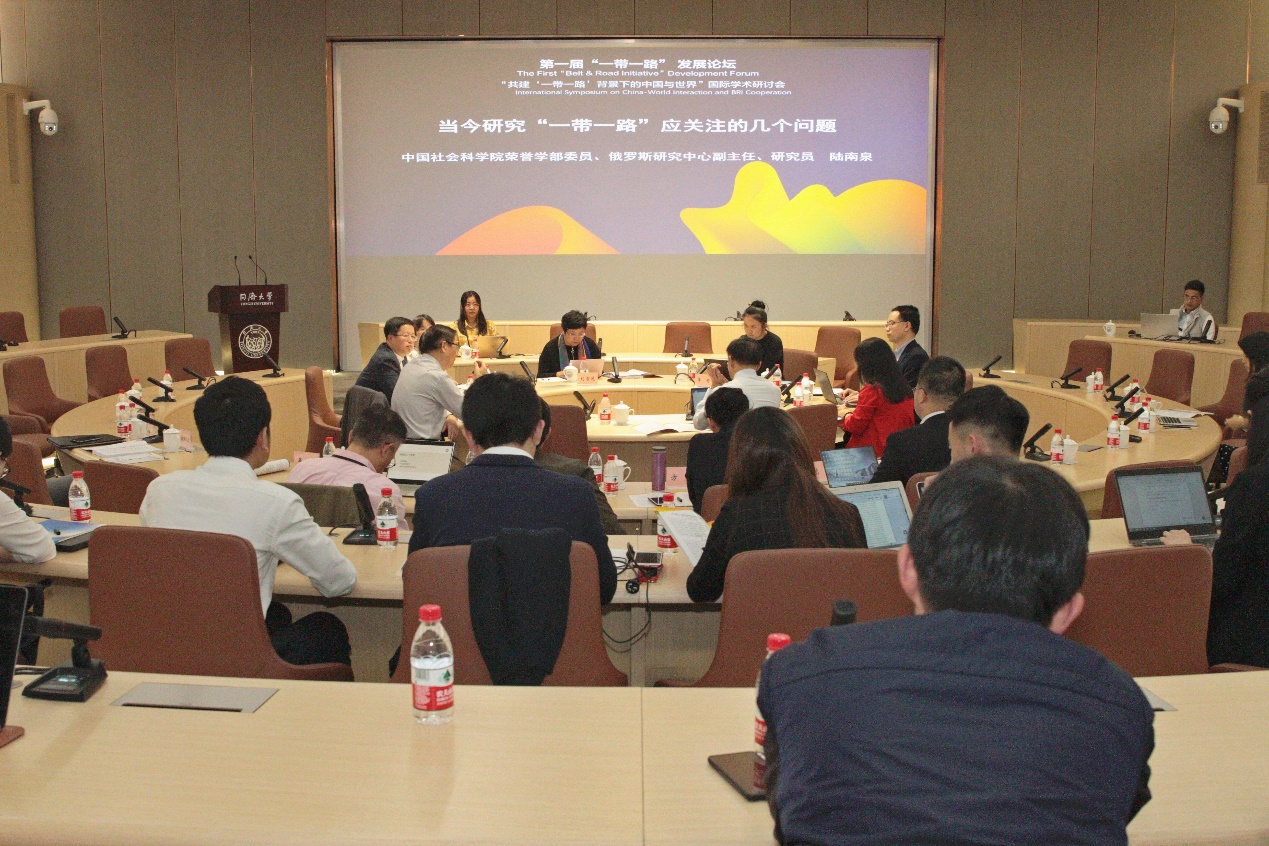
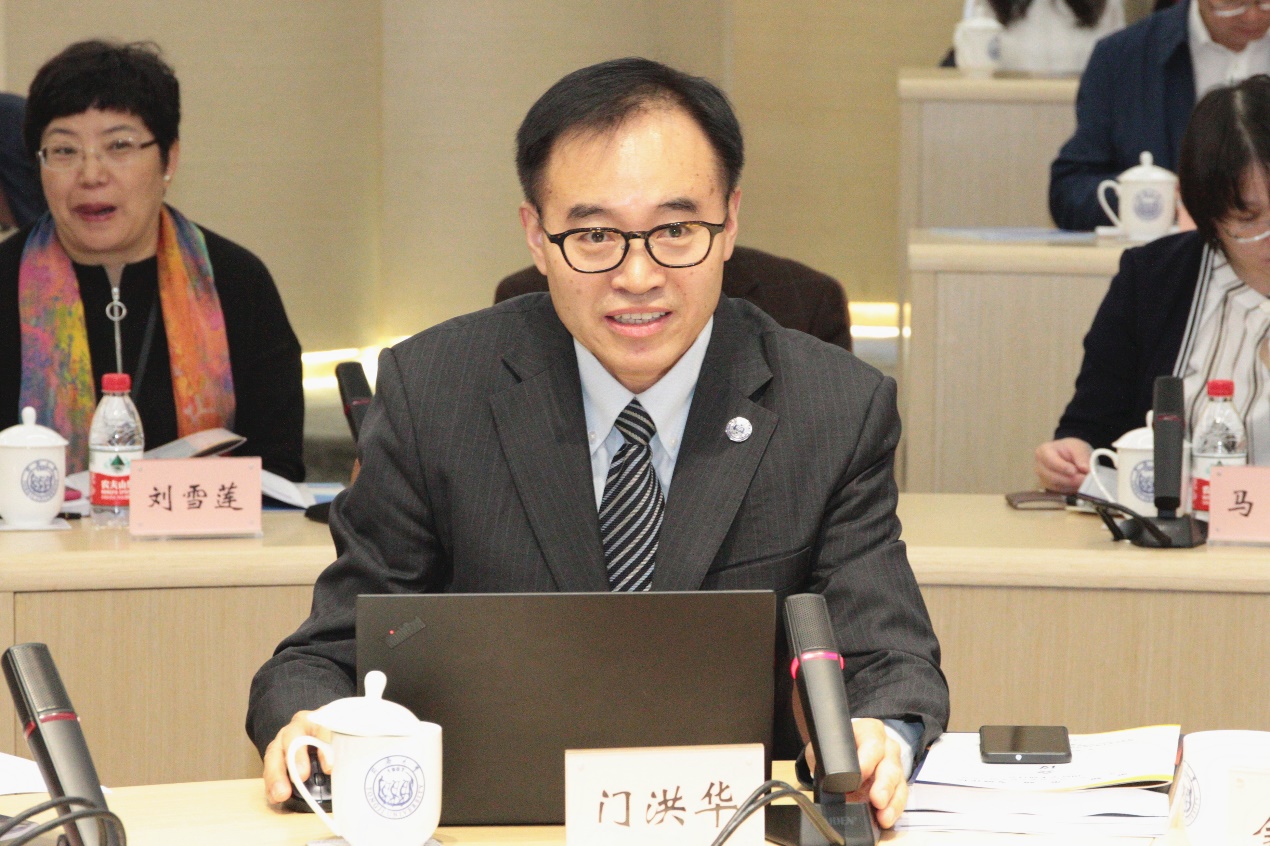

The second session was held in Conference Room 103, Yifu Building, Tongji University. With the theme of “Global Changes and China’s Period of Strategic Opportunities”, the participants explored the major changes unseen in a century and the ensuing opportunities and challenges, and discussed how China can respond to the changes by means of the BRI, so as to provide academic support for understanding and shaping China’s period of strategic opportunities. This session was moderated by researcher Li Xiangyang and Lin Limin, a professor at the International Politics Department, University of International Relations.
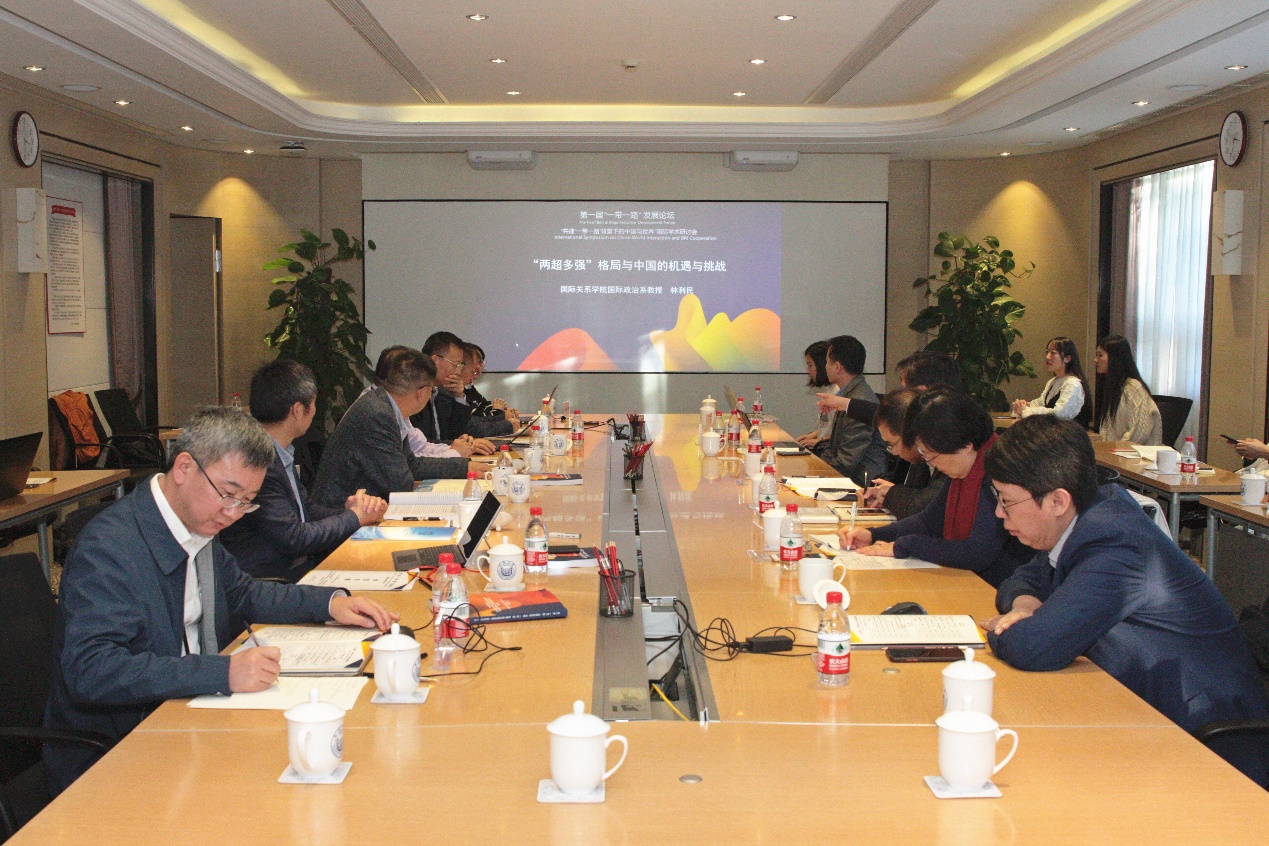

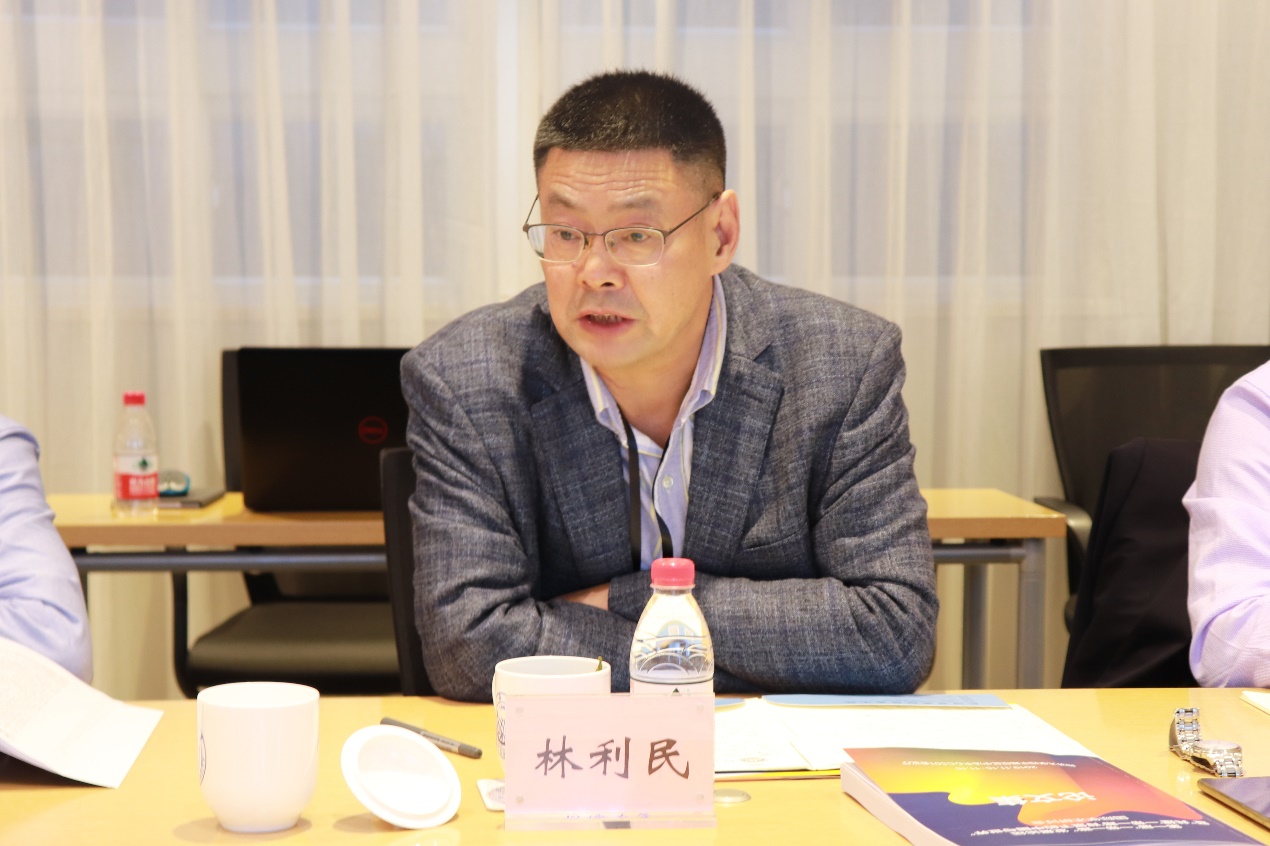
The third session was held in Conference Room 113, Yifu Building, Tongji University. Focusing on the theme of “The New Situation of Co-opetition among Major Countries in the Context of Profound Changes”, the participants discussed the new changes and trends of major country relations in the context of profound changes unseen in a century. In particular, they explored China’s strategic support and feasible paths for coping with the co-opetition among major countries in the new era by taking into account the viewpoints of other countries on China’s rise and the BRI. This session was moderated by Li Dingxin, Director of the Strategic Research Division, CCCWS, and Prof. Feng Yujun, Vice Dean of the Institute of International Studies, Fudan University.
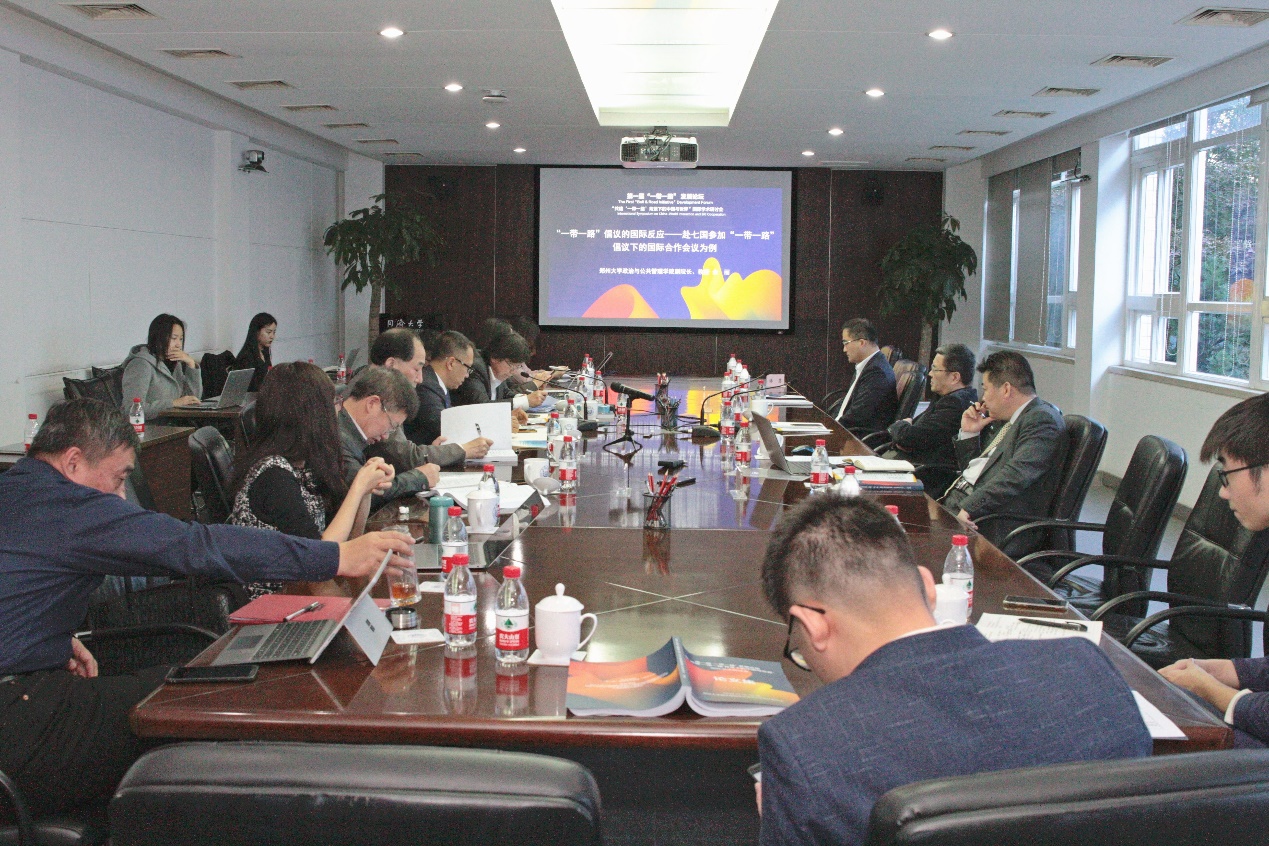
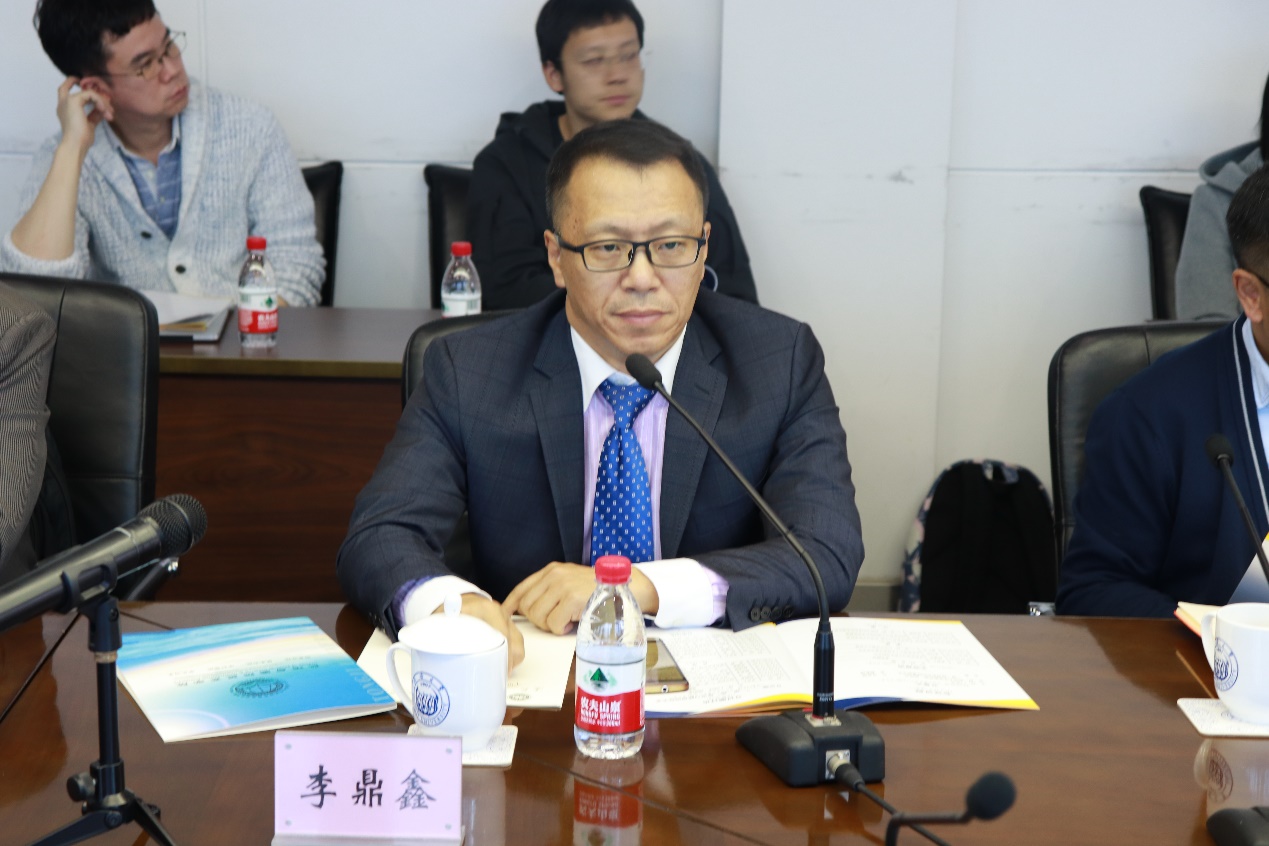
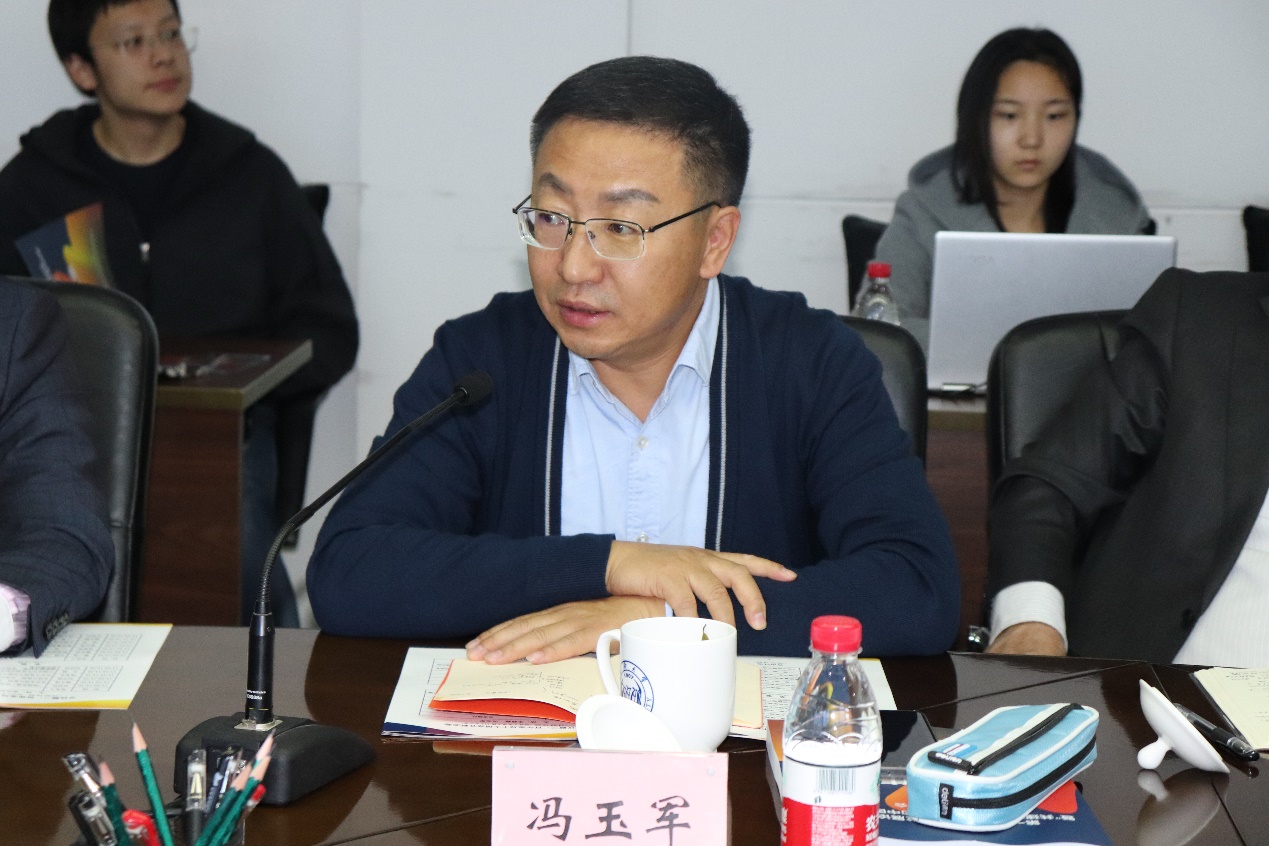
The fourth session was held in Conference Room C401, the Sino-French Center, Tongji University. Around the theme of “China-World Interaction amid Once-in-a-Century Changes”, the participants explored what role China is playing in this change and the BRI that serves as a platform for China’s foreign cooperation. In particular, the foreign guests were also keen to the discussion, putting forward enlightening views on what contributions the BRI can make to the world and how it can coordinate with the policies of their own countries. This session was moderated by Prof. Su Changhe, Dean of the School of International Relations & Public Affairs, Fudan University, and Prof. Zhao Kejin, Vice Dean of the School of Social Sciences, Tsinghua University.
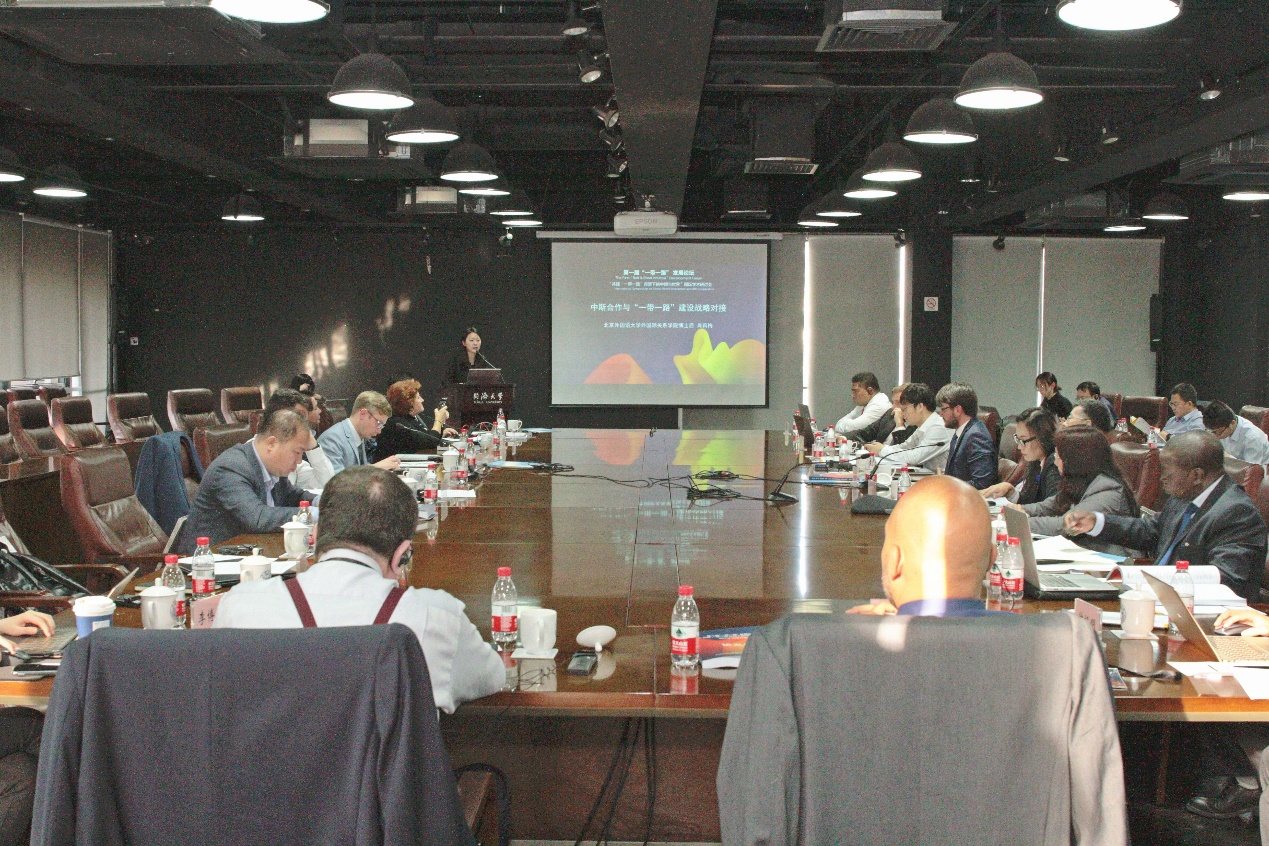
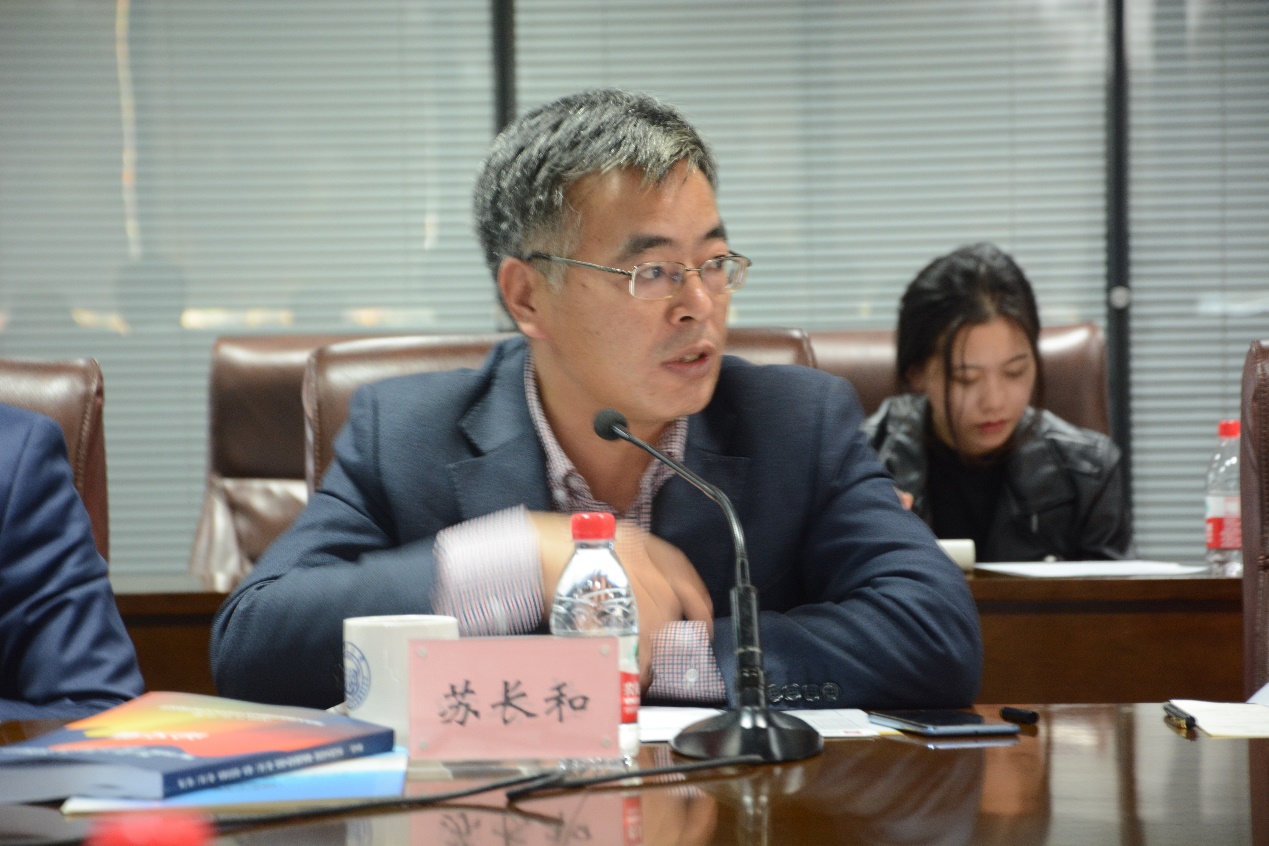
After the parallel sessions, the guests returned to Conference Room C501 to participate in the closing ceremony, which was addressed by researcher Jin Xin and Prof. Men Honghua, and moderated by Li Dingxin.
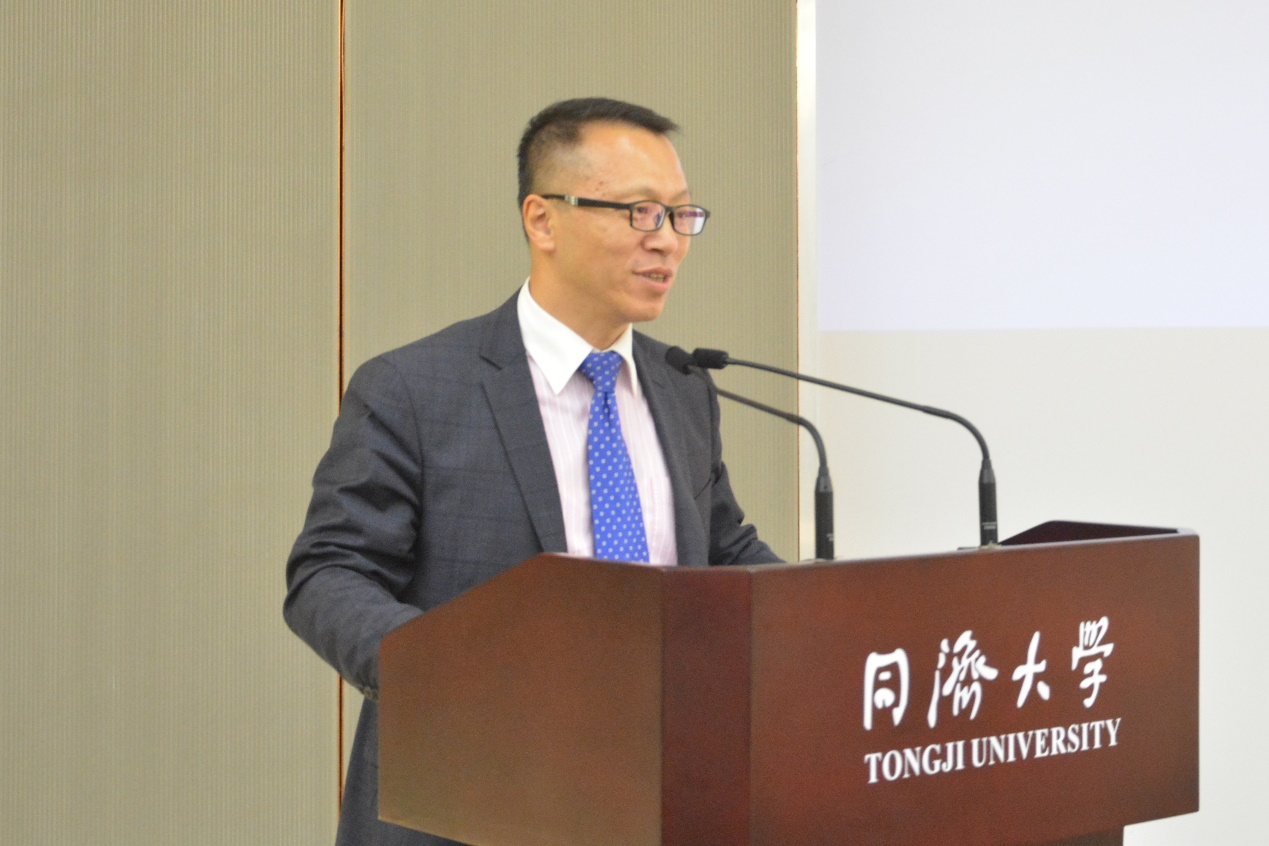
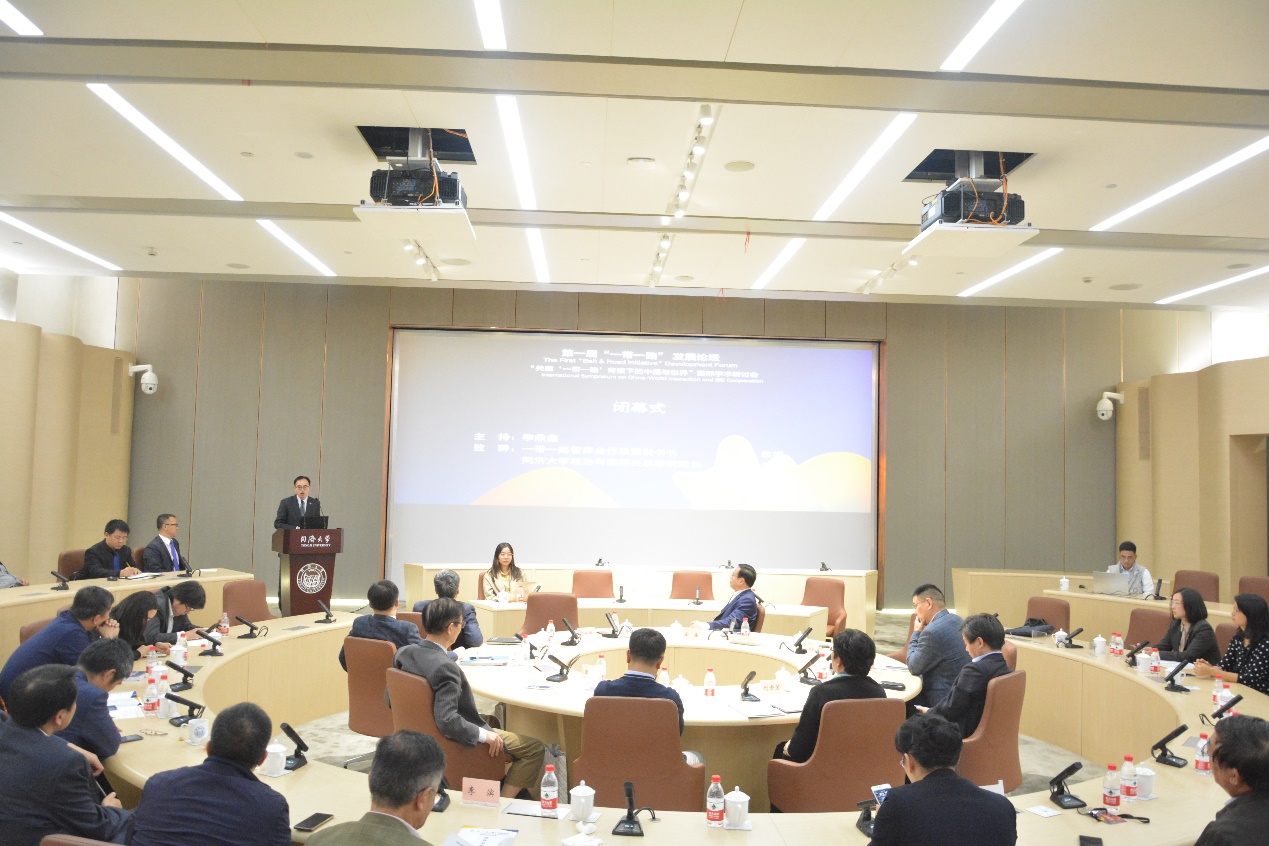
Researcher Jin Xin said in his speech that the first “Belt & Road Initiative” Development Forum attracted nearly 100 experts and scholars at home and abroad, who not only contributed high-quality academic papers, but also carried out extensive, in-depth and fruitful exchanges and discussions on related topics. This forum was a professional, high-end meeting at which the domestic academia exchanged cutting-edge views on the profound changes unseen in a century and the BRI. This forum was an academic meeting where different opinions were expressed freely yet consensus was built. Through the exchanges among experts and scholars at home and abroad, we are able to have a better understanding of the essence and value of the BRI. This forum was also an international meeting for information exchange and viewpoint sharing, which can effectively help us explore a path of high-quality development of the BRI and a model of mutual adaptation between China and the world. Looking forward, SRTA will need to carry out self-reconstruction, and objectively classify the members and encourage them to cultivate characteristics, give play to expertise and build brand. Finally, he expected that the SRTA members and the participants present can achieve synergy through academic resonance, so as to effectively communicate with foreign think tanks and scholars. He called for joint efforts on studying the issues related to the BRI, big or small. He also hoped that the forum will continue to deepen cooperation, expand influence, and create a unique brand.
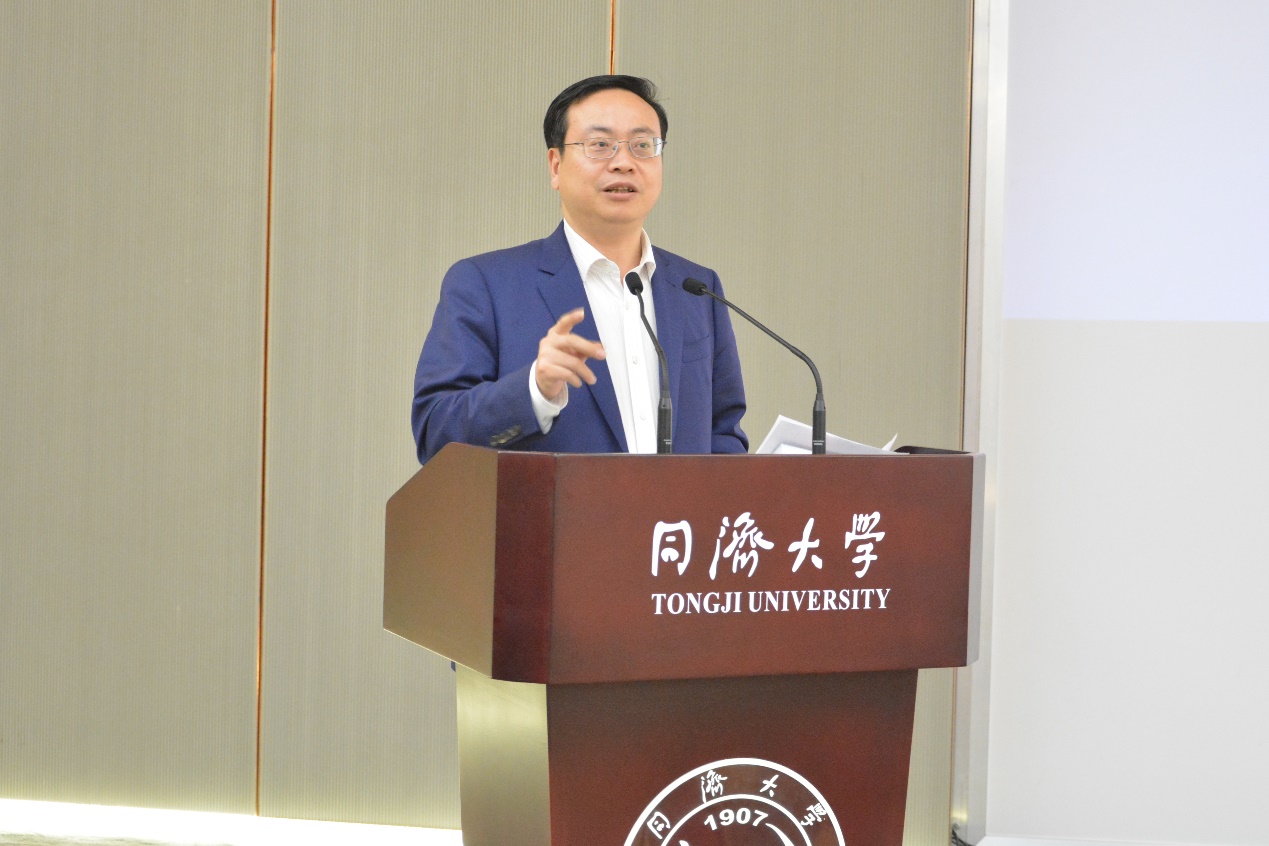

In the end, Prof. Men Honghua first thanked SRTA and its secretariat as well as CCCWS. He believed that the forum will continue to focus on major issues and achieve new, fruitful results in the future. Then, he expressed his gratitude to the wisdom and foresight provided by the participating experts, and looked forward to publishing their opinions and articles in commemoration of this event. Once again, Dean Men thanked everyone for their kindness and support to Tongji. He pointed out that, as a demand of the times, international studies is a new growth point for the social sciences of Tongji to achieve curve overtaking and leapfrog development. This gathering of leading experts and scholars at Tongji will undoubtedly facilitate the development of international studies and the social sciences discipline group of the university. Finally, he thanked the executive teams of CCCWS and SPSIR for their strong support to the event. Dean Men welcomed all the guests to visit Tongji anytime. Just like the BRI, this forum will also change and advance with the times.
